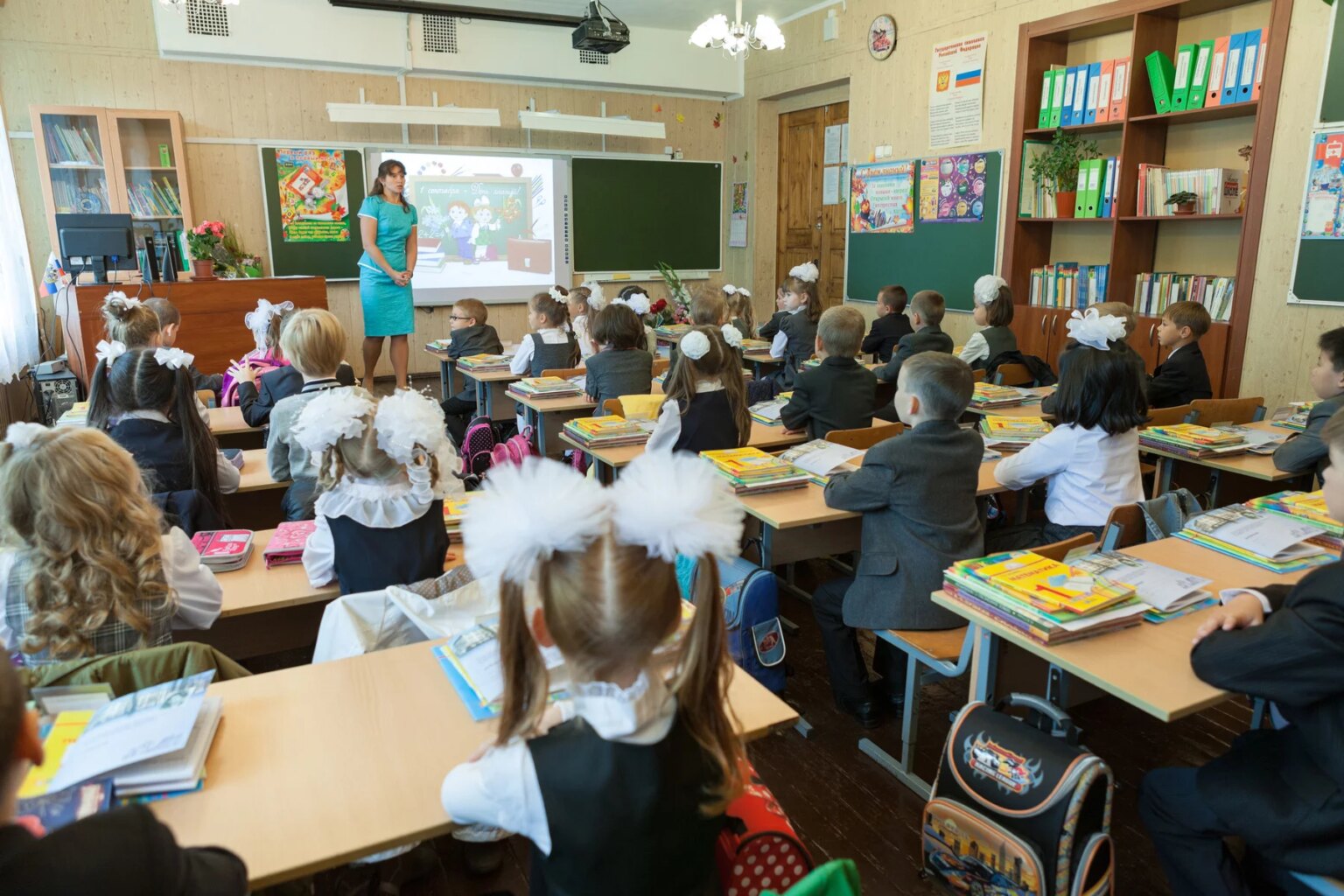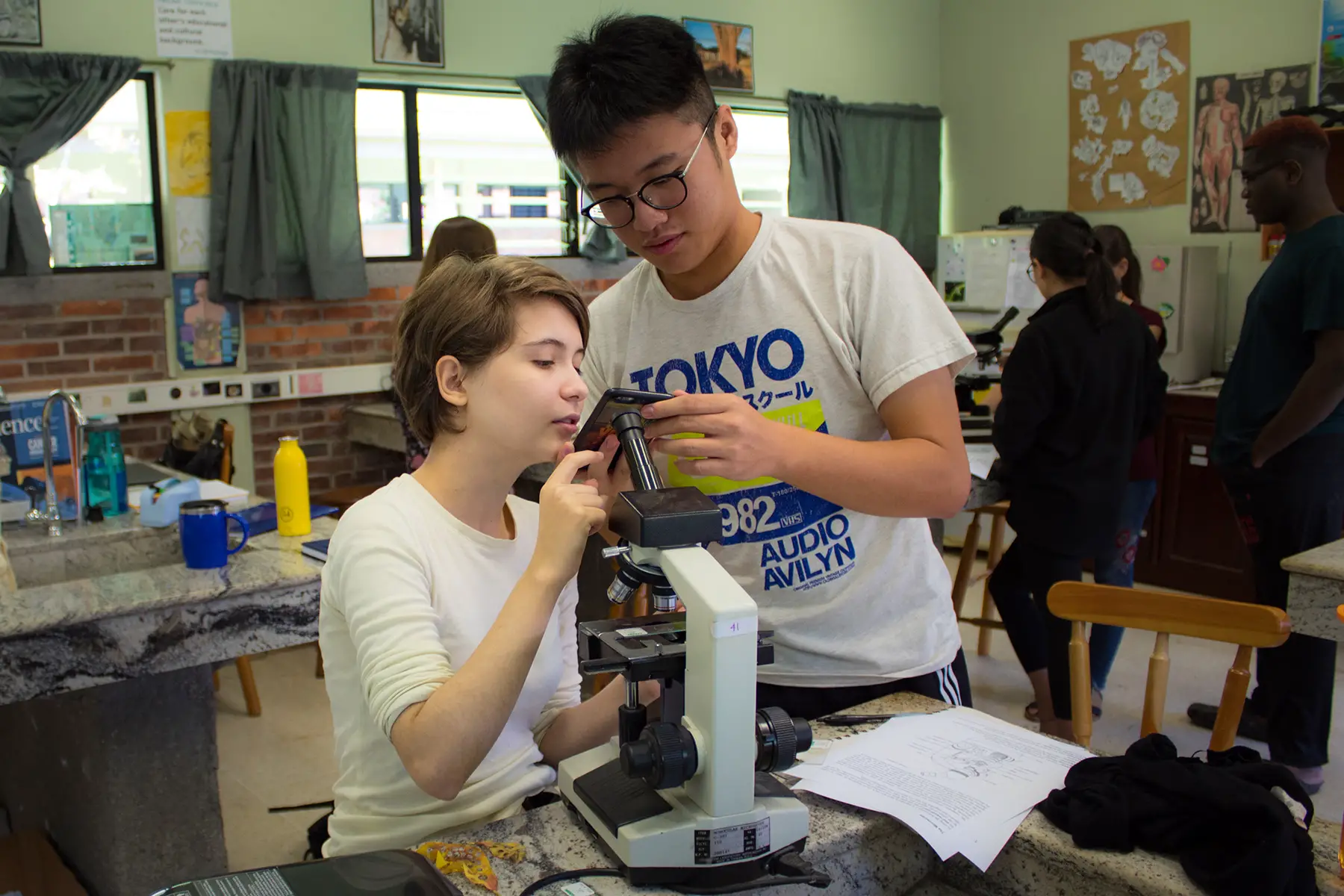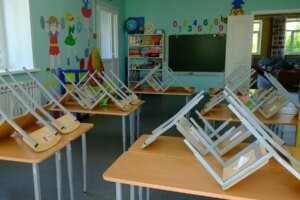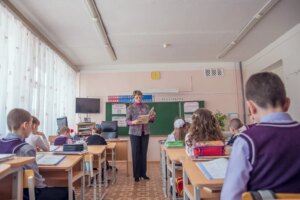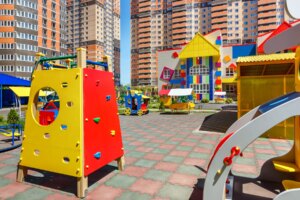Important notice from the Editor in Chief
Maintaining our Russian site is a delicate matter during the war. We have chosen to keep its content online to help our readers, but we cannot ensure that it is accurate and up to date. Our team endeavors to strike the right balance between giving information to those who need it, and respecting the gravity of the situation.
Between public and private options and vocational and academic tracks, getting your head around education in Russia can seem complex. If the Russian schooling system is different from that of your home country, the process of choosing the right option for your child can also feel overwhelming.
However, with a little research and some preparation, navigating the education system in Russia can be a relatively seamless process. And this handy guide is here to help you avoid many of the pitfalls associated with enrolling your child in school in Russia. It includes the following:
- The education system in Russia
- Preschool education in Russia
- Primary education in Russia
- Secondary education in Russia
- The International Baccalaureate (IB) in Russia
- Graduating in Russia
- Educational support for expat students in Russia
- Support for children with special educational needs (SEN) in Russia
- Changing schools in Russia
- Homeschooling in Russia
- Useful resources
The education system in Russia
Fortunately for expats, Russia boasts one of the most reputable education systems in the world which ranks 43rd in the World Economic Forum’s Global Competitiveness Report 2016-2017. Furthermore, the country’s adult literacy rate was 99.73% in 2018, which is the fourth-highest in Europe.
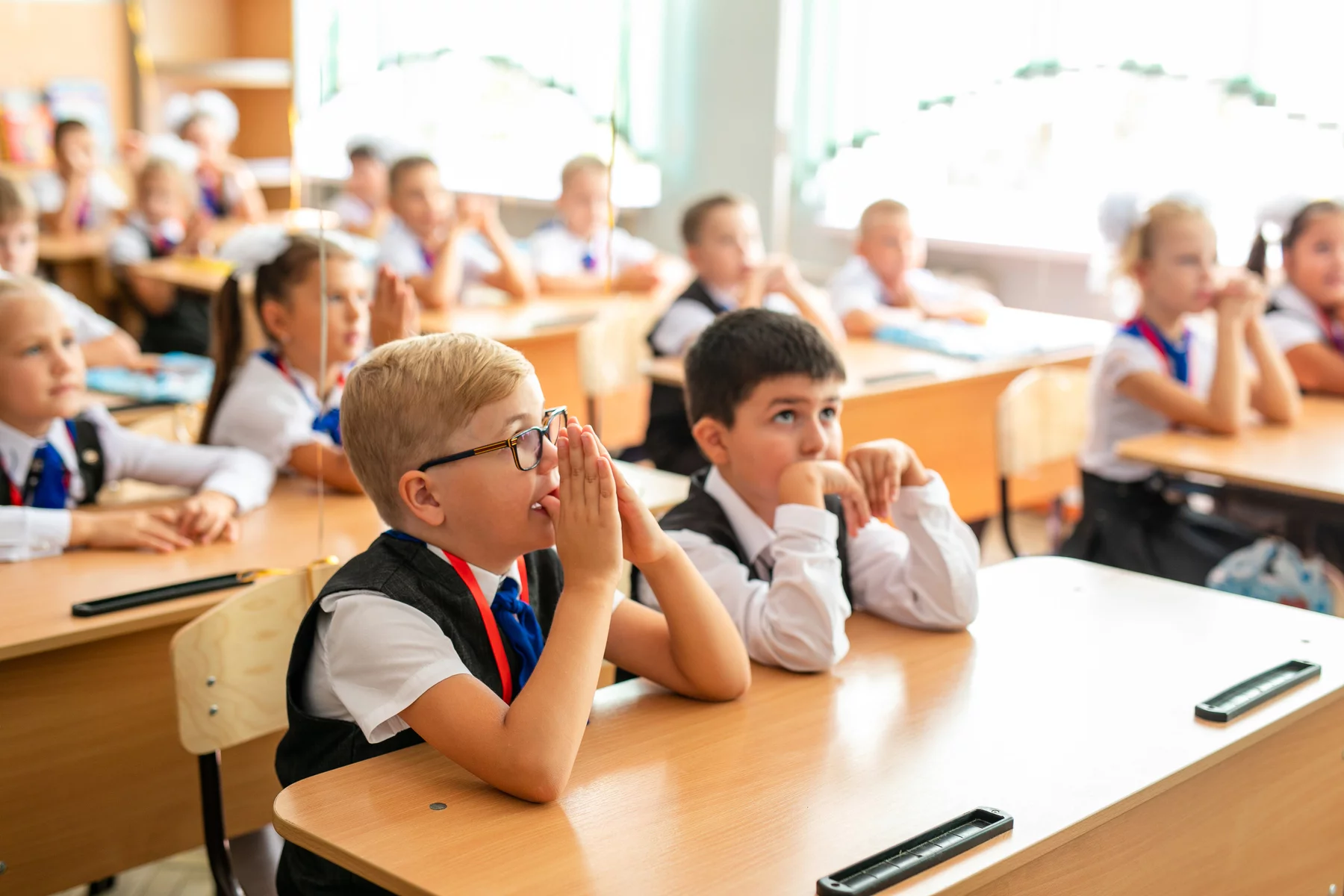
Russia’s education system is coordinated by the government, and state schools are free for everyone to attend. That said, the quality of education offered at Russian state schools can vary wildly depending on the city and the school itself. Therefore, it really pays to do your homework when considering which option is best for your child.
Russia is also home to private schools, some of which are international schools that cater to children of various nationalities. These are highly popular among expats as they provide a multicultural environment and enable children to study the same curriculum they would back home and in their first language. That said, they often charge high tuition fees and have long waiting lists, which can make it difficult to secure a place for your child unless you apply far in advance and have sufficient financial means.
The three stages of education in Russia
Education in Russia is divided into three stages: primary, basic general, and secondary. Primary education begins at the age of six or seven and lasts for four years. This is followed by five years of basic general education, and two to three years of secondary education. Students can choose to complete secondary education at a regular school or opt to attend a vocational training college for that period.
Subjects and grades
At the end of secondary education, all students must pass the Unified State Examination (EGE) (Единый государственный экзамен, Yediny gosudarstvenny ekzamen) if they wish to continue to higher education. Exams in Russian and mathematics are mandatory, while other subjects, including sciences, foreign languages, and humanities, are optional.
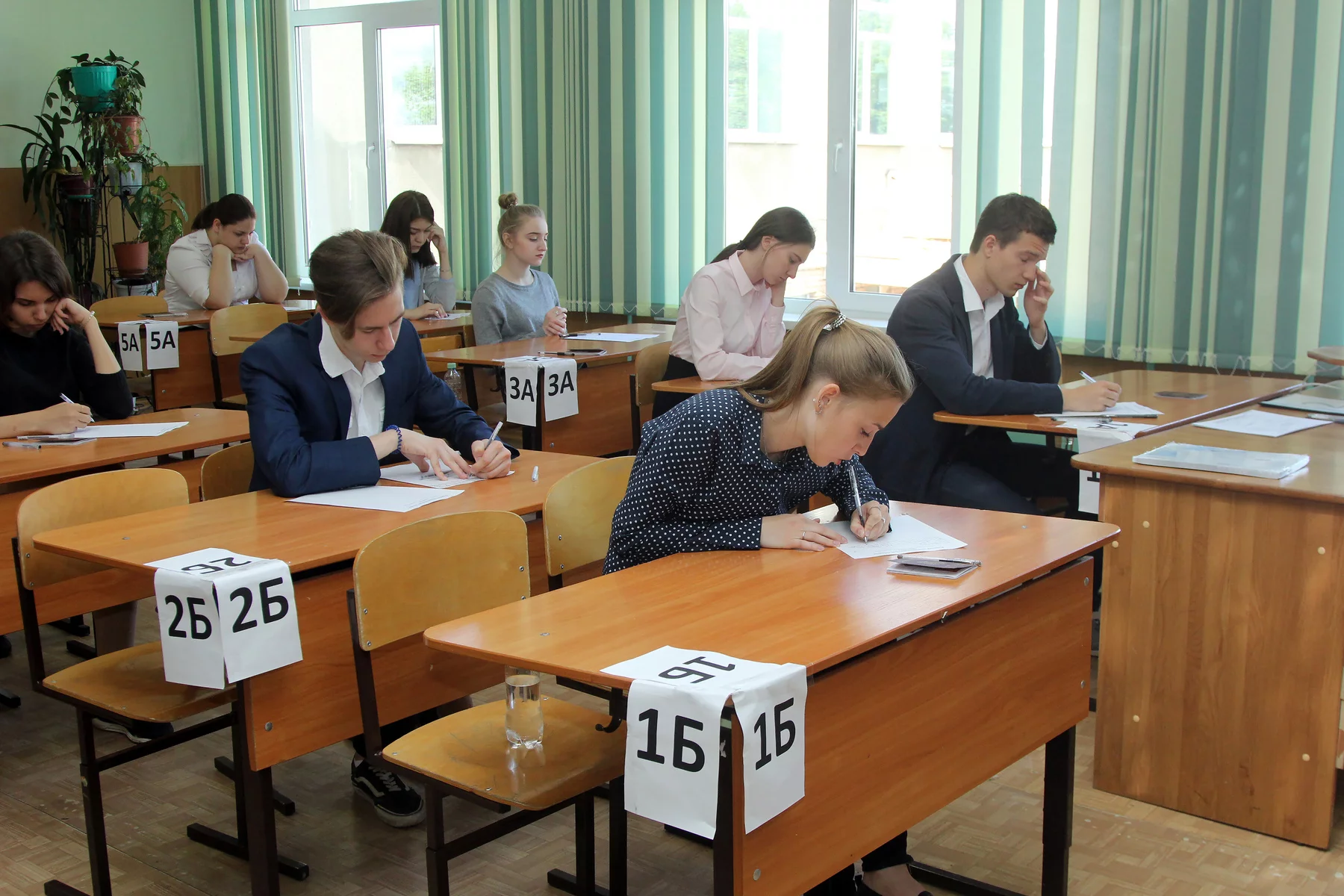
The Russian Ministry of Education sets the study program in schools and unlike in many countries, students have no say in the subjects they study until they take the Unified State Examination (EGE). Students are graded on a five-step scale, with 5 being ‘excellent’ and 1 being a sign of extreme failure. Teachers rarely assign a grade 1, and most of the time, students receive grades between 2 and 5.
The school year and holidays in Russia
The school year in Russia traditionally starts on 1 September, which is known as Knowledge Day (День знаний, Den znaniy). This day also marks the end of the summer and the beginning of autumn. A traditional First Bell ceremony usually takes place for children coming to school for the first time. Pupils and parents also give flowers to the teachers to thank them.
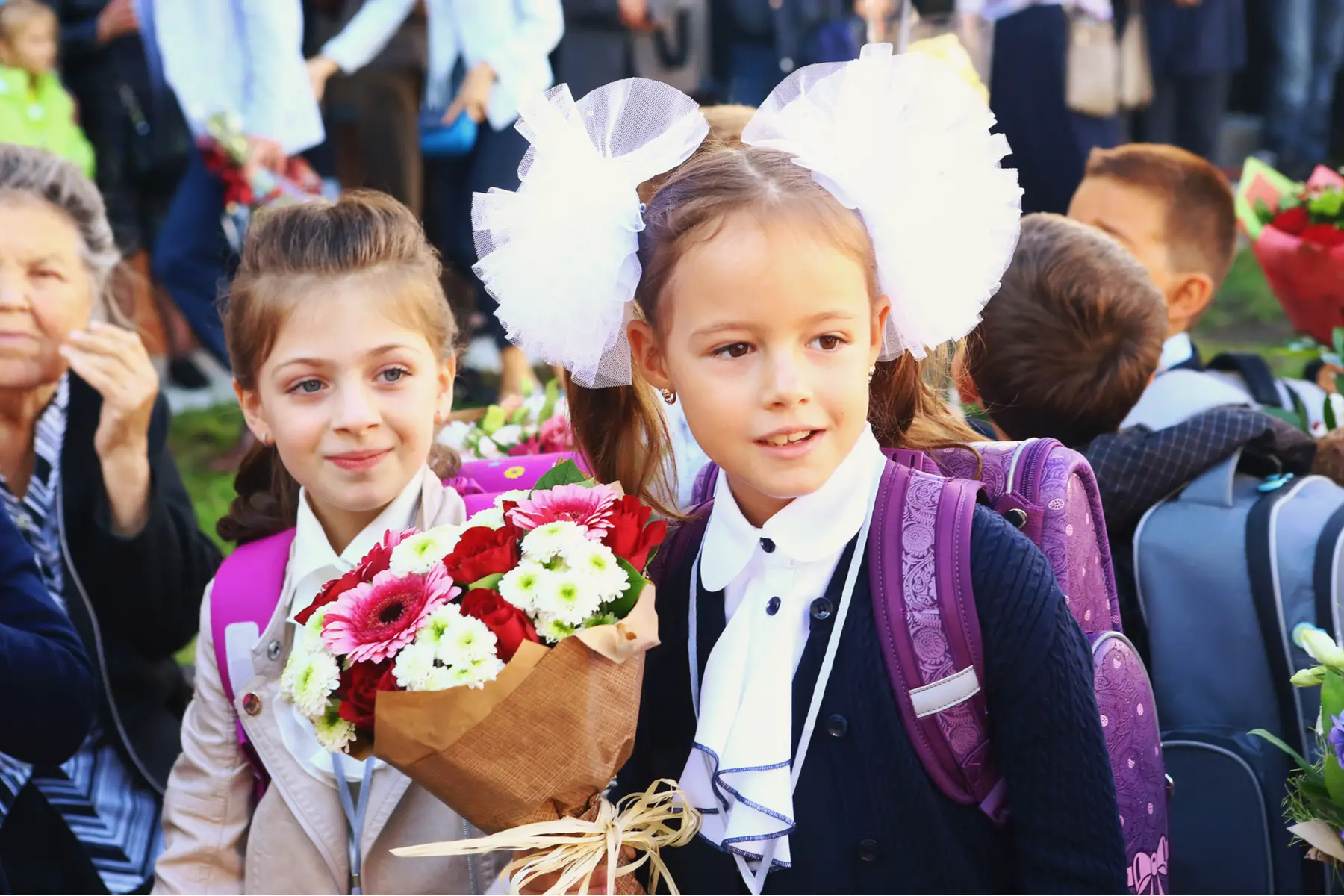
The Russian school year ends on May 25, when pupils take part in the Last Bell ceremony. On the day, they wear the traditional Soviet-style school uniform, exchange flowers and presents, and say goodbye to their classmates. It is also customary for girls to wear white bows in their hair.
In Russia, the school year is split into four terms (or quarters) which are separated by one or two-week holidays; the first week in November, the first two weeks in January, and the last week of March. Similar to other European countries, the summer holiday in Russia lasts for three months, spanning June, July, and August.
Preschool education in Russia
Russian children often attend kindergarten (детский сад, detsky sad) from as early as 18 months old, up until they begin primary school at six or seven years old. Russia is home to almost 48,000 kindergartens, which include both local Russian schools and international alternatives. As a result, there are plenty of preschool options for expat parents.
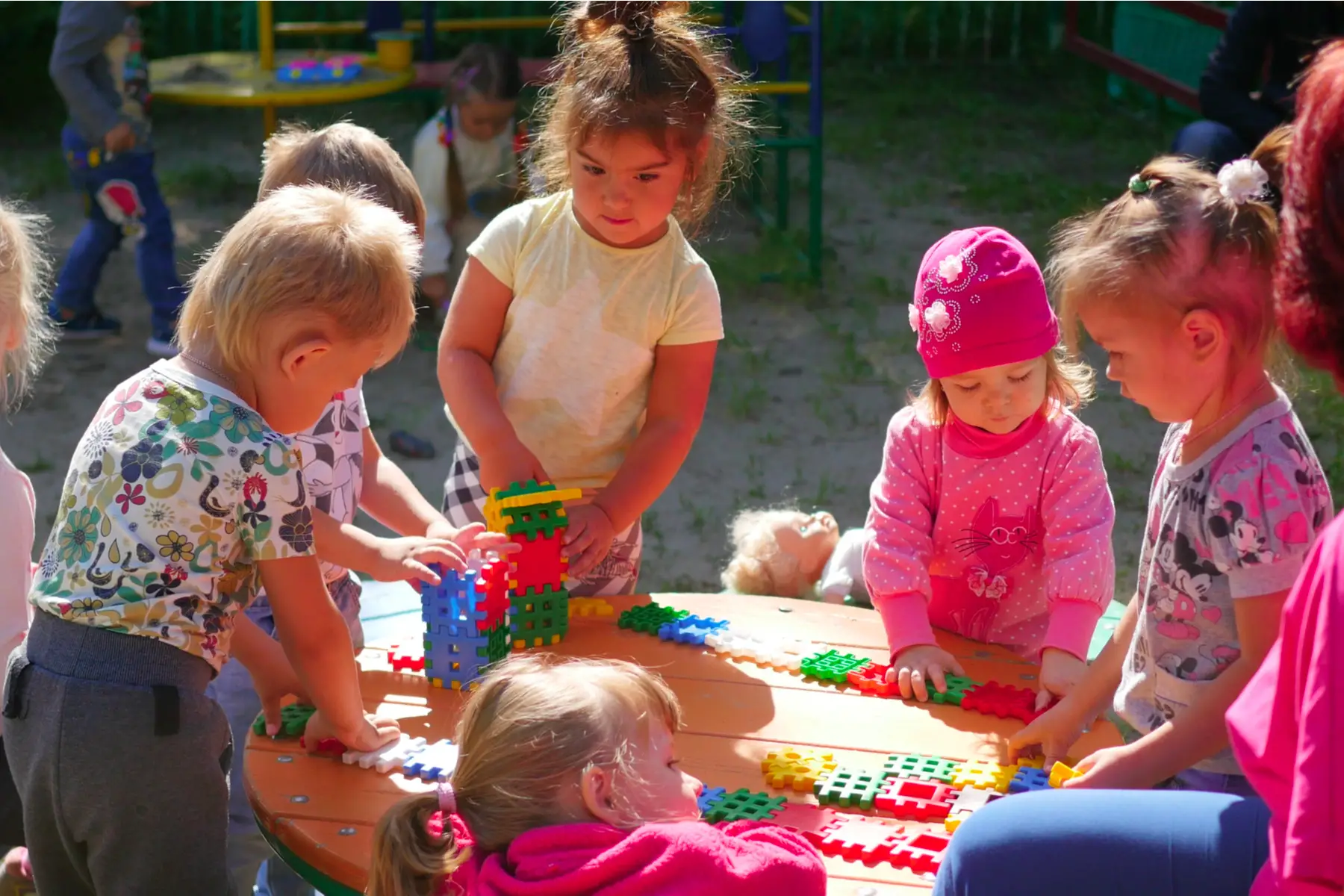
Regional and local governments run the vast majority of kindergartens in Russia and by law they can only charge parents up to 20% of the total cost of childcare. Despite the abundance of kindergartens throughout the country, spaces remain limited. For this reason, many parents often add their child to a waiting list immediately after they have given birth.
There are also numerous privately-owned preschools in Russia, particularly in and around the major cities. Some international schools for older children also offer facilities for preschool-aged children, with instruction in the school’s primary language. However, fees can be very high.
Primary education in Russia
Primary school (начальная школа, nachalnaya shkola) is overseen by the Russian Ministry of Education and is compulsory for all children in the country. Children in Russia begin primary school at the age of six or seven and continue it for four years. During this time, they learn to read and write and master basic mathematics.
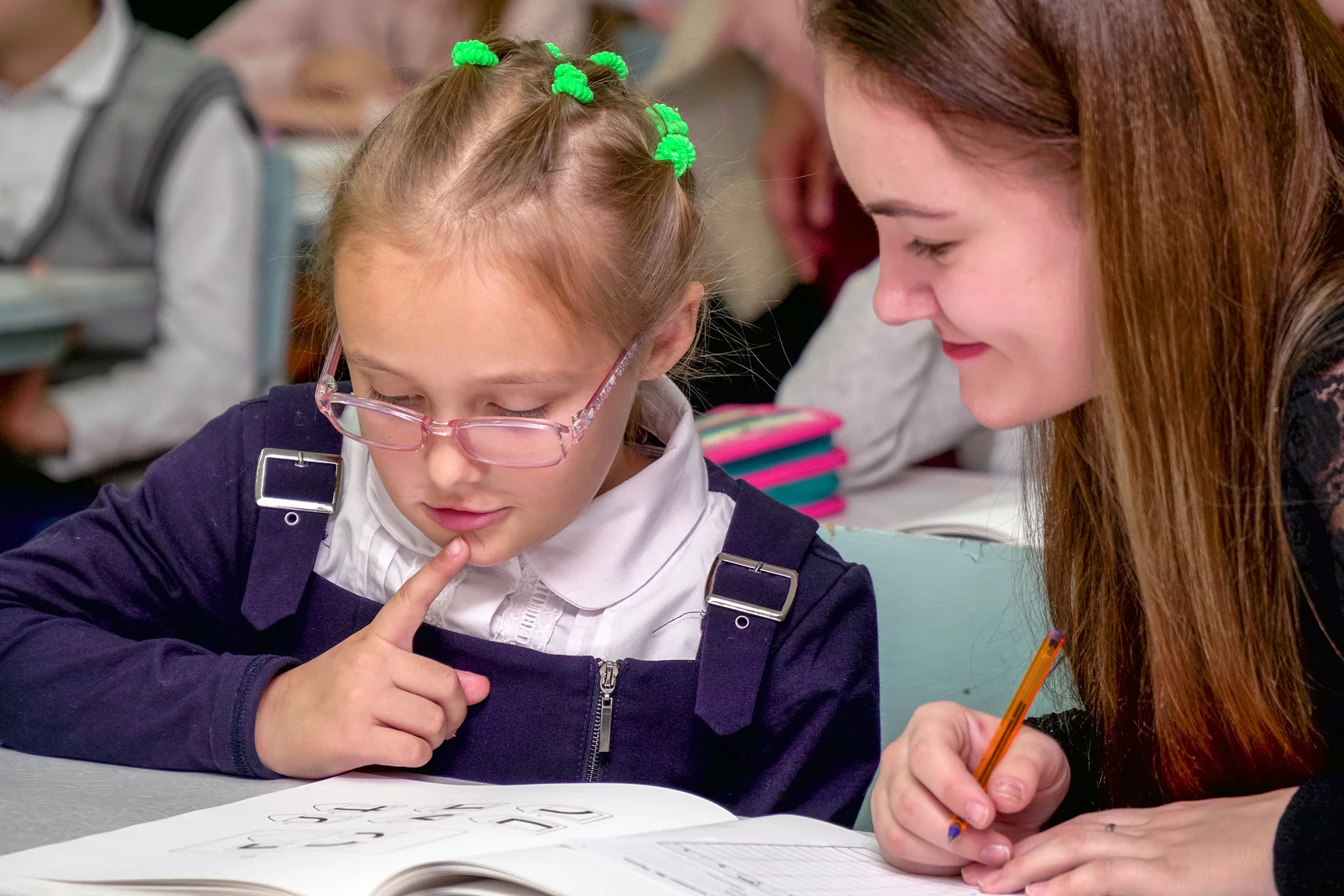
Most primary schools also begin to teach children a foreign language, which is usually either English or German. Students also study music, physical education, and a subject called “the world around us” (окружающий мир, okruzhayushchy mir). This contains basic elements of geography, history, and social studies.
Public primary schools in Russia
Public primary schools are free to attend in Russia, but parents still need to pay for books, sportswear, school uniform, and other things their children need. Notably, the quality of education varies depending on where you live. In the major cities, such as Moscow, St. Petersburg, and Yekaterinburg, for instance, the standard of education is typically higher than in rural areas. There is also a wider variety of primary schools to choose from, compared to small towns and villages which often only have one.
Private primary schools in Russia
If you are willing to pay to ensure that your child receives a higher standard of education, then you might want to consider enrolling them at a private school. Russia is home to numerous privately-owned, fee-paying schools, particularly in the larger cities.
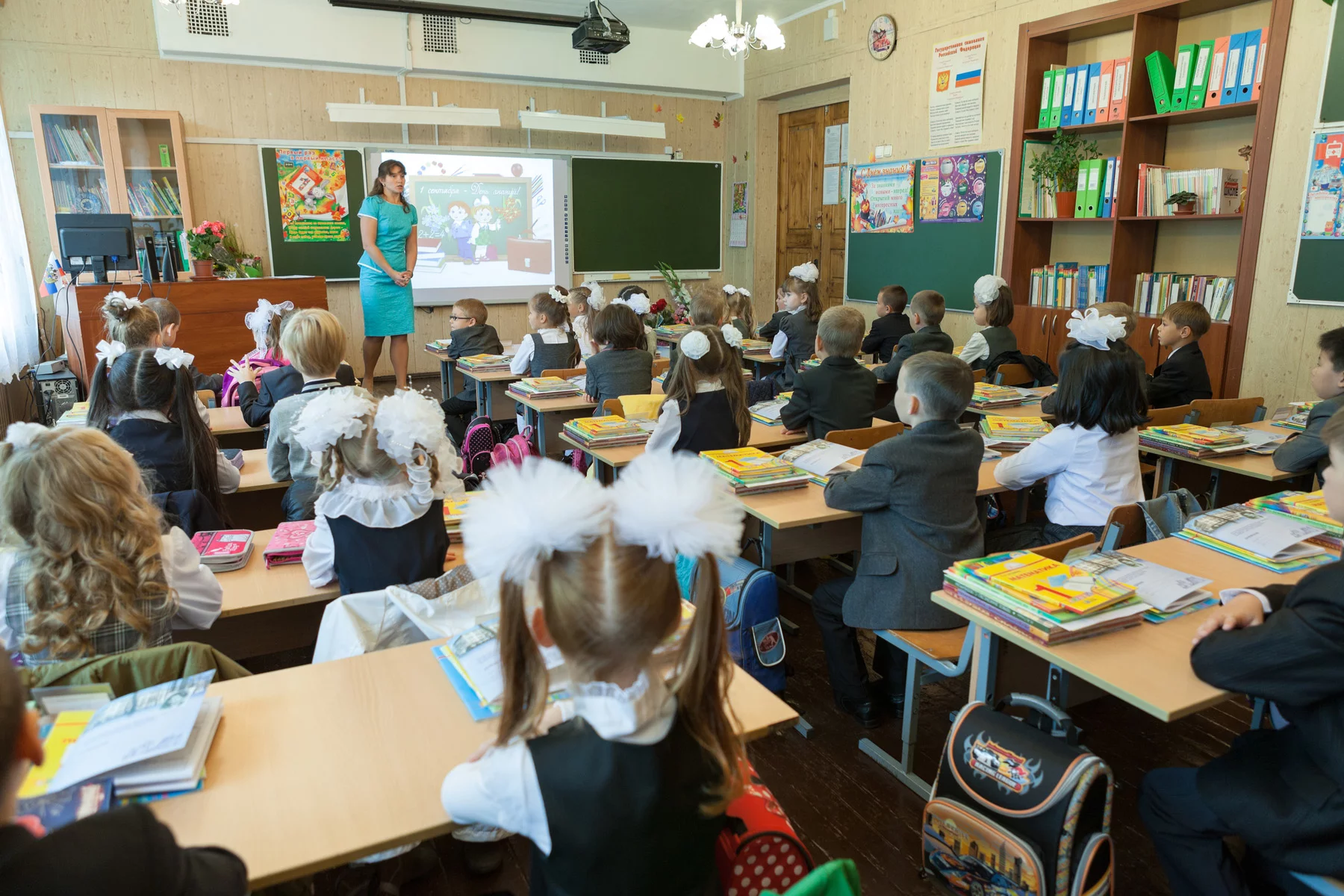
Although fees vary based on the school and the location, they are generally quite high. For example, primary school classes at Moscow’s Zhukovka Gymnasium cost ₽63,000 per month, while the Aristos Lyceum in St. Petersburg charges ₽20,000 per month.
Expats often want to ensure that their children’s education matches that of their home country to the greatest possible extent. If this sounds appealing to you, then you may want to look at sending your child to an international school. Moscow, in particular, offers a wide range of international schools that teach curricula from various countries such as the UK, the US, France, Germany, Italy, and Sweden. The vast majority of international schools in Russia cover both primary and secondary education.
Secondary education in Russia
Secondary education in Russia is split into two parts. Basic general education (основное общее образование, osnovnoye obshcheye obrazovaniye) lasts for four years and ends with the Basic State Examination (Основной государственный экзамен, Osnovnoy gosudarstvenny ekzamen – ОГЭ/OGE). This determines what students can study during the final two years of their education.
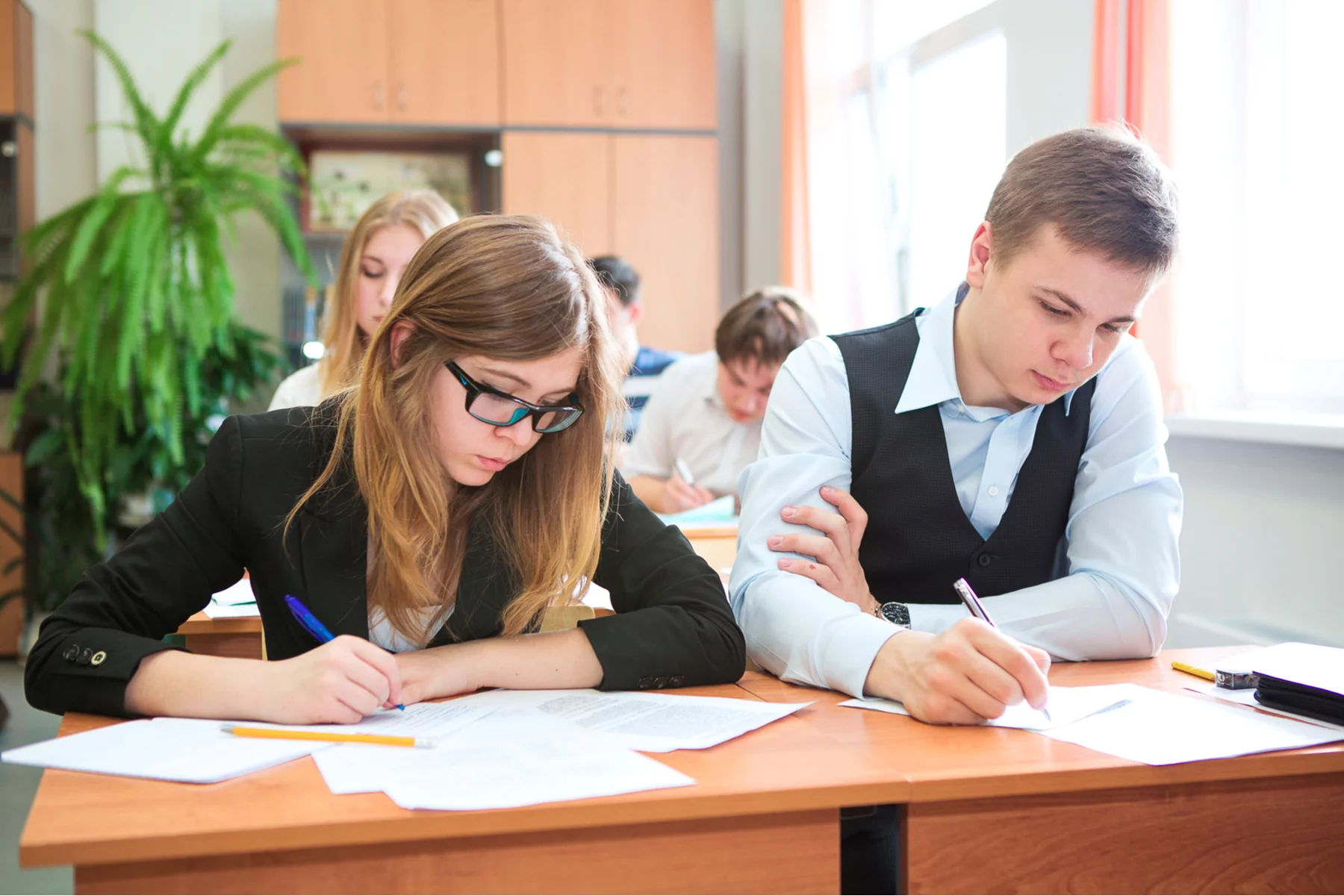
After taking this exam, students who received high enough marks can continue on to secondary general education (Среднее общее образование, sredneye obshcheye obrazovaniye), which lasts for two years and culminates with the Unified State Examination (EGE). Other pupils may decide to spend those two years in vocational education.
Public secondary schools in Russia
Like public primary schools, public secondary schools in Russia are free to attend and are overseen by the Ministry of Education. Again, like primary schools, the quality of education can vary greatly depending on the school and its location.
All children must attend school until the age of 15, at which time they may leave with their parents’ consent. For the first four years of secondary school, they will study Russian language, literature, a foreign language, mathematics, IT, history, social studies, geography, physics, biology, chemistry, music, art, design & technology, and physical education.
This period ends with students taking the Basic State Examination (OGE). After doing so, they can choose to either continue studying for another two years and take the Unified State Examination (EGE), switch to a vocational school, or leave education altogether.
Vocational schools in Russia
There are two types of vocational schools in Russia: college (колледж, kolledzh) and technical school (техникум, tekhnikum). These can prepare students for a wide range of careers, from aviation and veterinary medicine to secretarial work and engineering. However, while both provide a vocational education, colleges offer a more in-depth education and more advanced qualifications than technical schools.
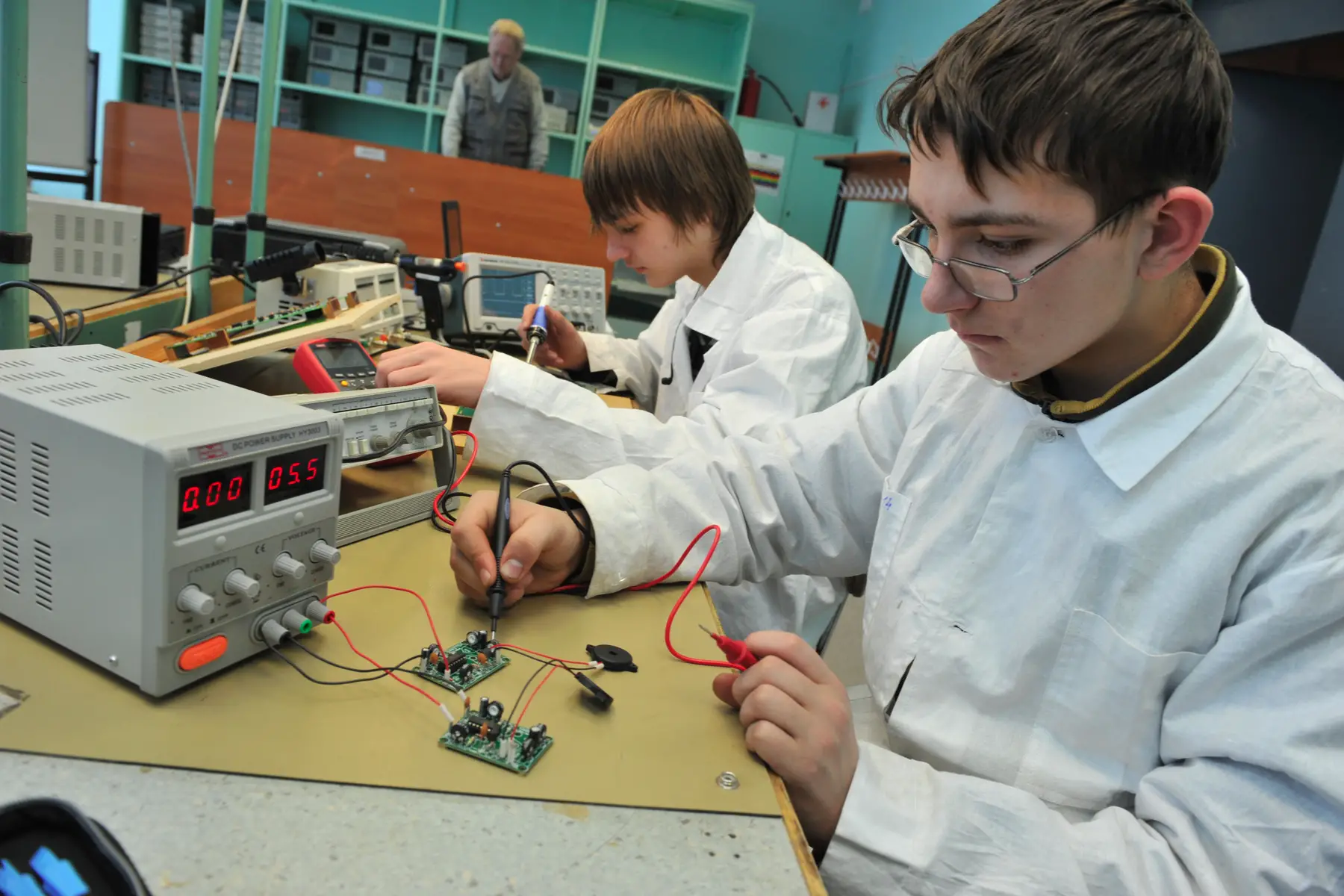
During their first year at a vocational school, students will study subjects that are relevant to their chosen profession, as well as subjects they previously studied at school; such as Russian language, mathematics, and history. During the second and final year, students will study a wider range of subjects that are linked to their profession.
Private secondary schools in Russia
Russia is home to a number of private secondary schools, which are mostly based in Moscow and St. Petersburg. That said, smaller cities such as Kazan and Penza also offer similar schools.
These schools usually offer a higher standard of education than public secondary schools, but charge higher fees than private primary schools. The fees for private secondary schools can also vary significantly depending on location. For example, the First Moscow Gymnasium charges ₽150,000 per month for education, while the Tete-a-Tete private school in St. Petersburg charges ₽240,000 per year.
If you prefer your child to receive their education in their native language, there are also a number of international schools in Russia that teach in English and other languages. Just bear in mind that the majority of these are based in Moscow. You can search for international schools in Russia in our directory.
The International Baccalaureate (IB) in Russia
The International Baccalaureate (IB) is an international education program that is offered to students between the ages of three and 19 by schools in 138 countries. Due to its broad international recognition, the IB is often a popular choice among expat families, particularly those who regularly move between countries.
More than 50 schools in Russia offer International Baccalaureate qualifications. Of these, 47 teach in English, and 11 offer bilingual education in Russian and English.
Graduating in Russia
In order to graduate from school, Russian students must sit the Unified State Examination (EGE). This includes mandatory exams in the Russian language and mathematics, along with a range of additional subjects that students may choose from.
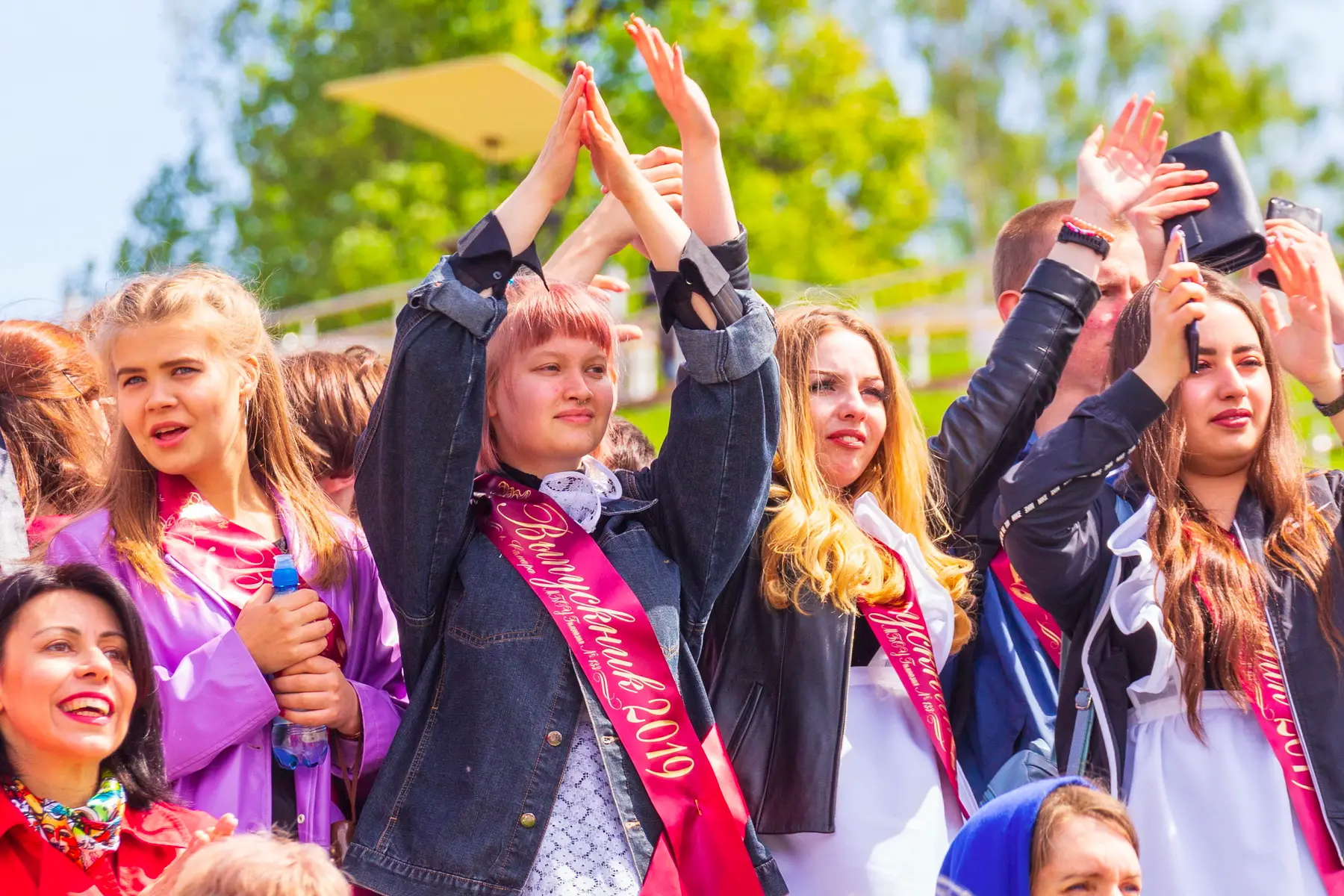
These include foreign languages (English, German, French, Spanish, and Chinese), physics, chemistry, biology, geography, literature, history, social sciences, and computer science. Students who receive high enough grades in their exams will be able to go on to study at university.
Educational support for expat students in Russia
Unfortunately, the Russian educational curriculum does not make any allowances for children who do not speak Russian, and the majority of public schools don’t offer additional language classes or support for non-Russian-speaking pupils. That said, many private schools provide additional Russian lessons at an extra cost.
Support for children with special educational needs (SEN) in Russia
There are several modes of support available for children with special educational needs (SEN) in Russia. For instance, children deemed to have delayed development are entitled to additional ‘compensatory’ classes within mainstream schools.
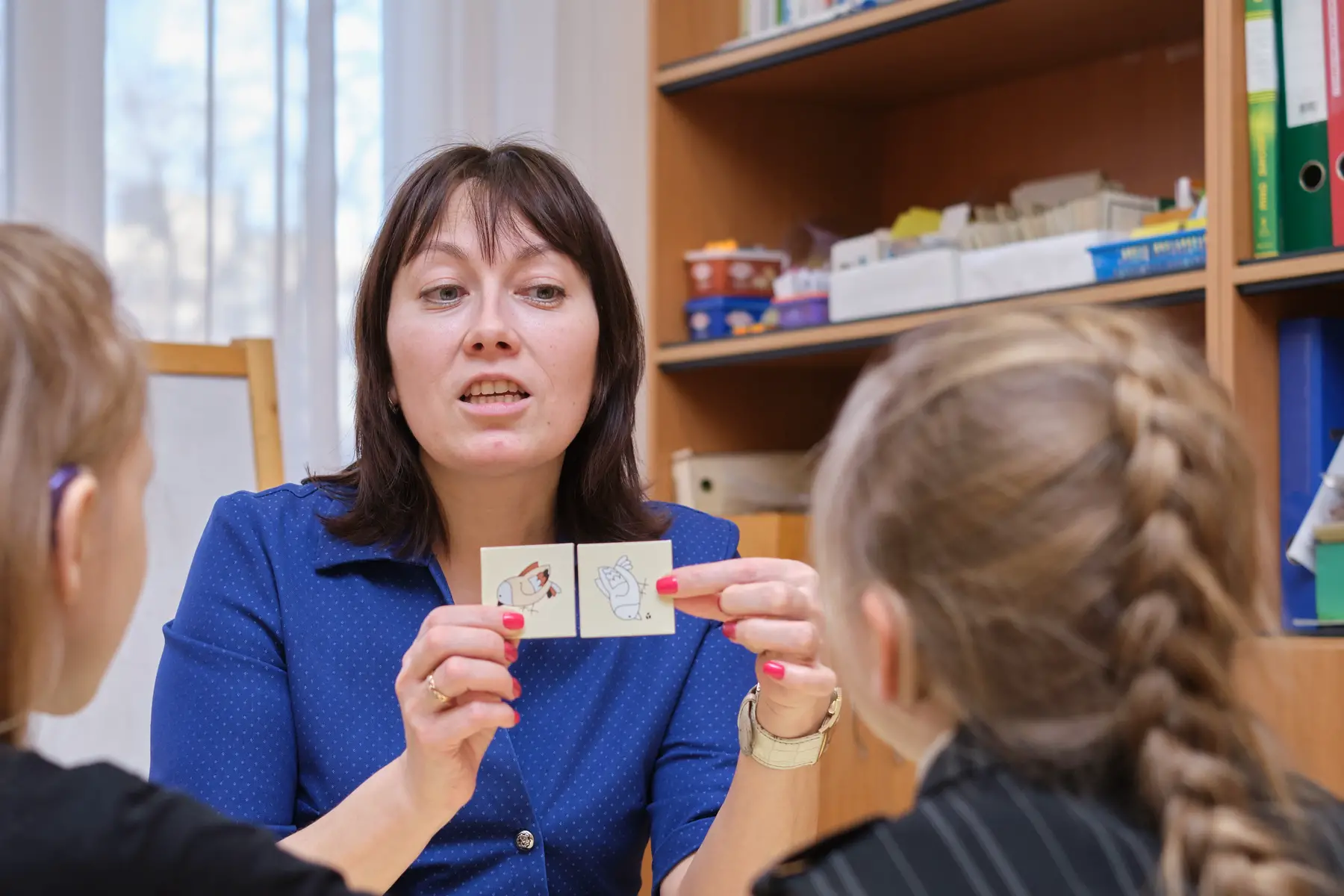
Meanwhile, those with more severe learning difficulties may attend a ‘corrective’ boarding school (коррекционная школа, korrektsionnaya shkola). These schools accept pupils between the ages of eight and 21 and aim to help them adapt to life in modern society, rather than providing an in-depth education.
There are also a number of specialized schools in Russia that cater to pupils with various physical disabilities. For example, there are 80 schools for children with impaired eyesight, which offer an additional twelfth year of study and reduced class sizes. In addition, there are over 200 specialized boarding schools that cater to hearing-impaired students.
Changing schools in Russia
According to Russian legislation, a child’s parents may transfer them to another school at any time without needing to provide a reason. However, there is a procedure that they must follow.
Parents must first file an official notice with their child’s current school stating their intention to withdraw their child. The school will then provide them with all documentation relating to their child, which the parents must then submit to the new school, together with an application for their child to study there.
Homeschooling in Russia
While still rare, homeschooling is growing in popularity among Russian families. For instance, in 2015/16 only 8,200 Russian children were being taught at home. However, by 2018/19, this number had grown to over 20,000.
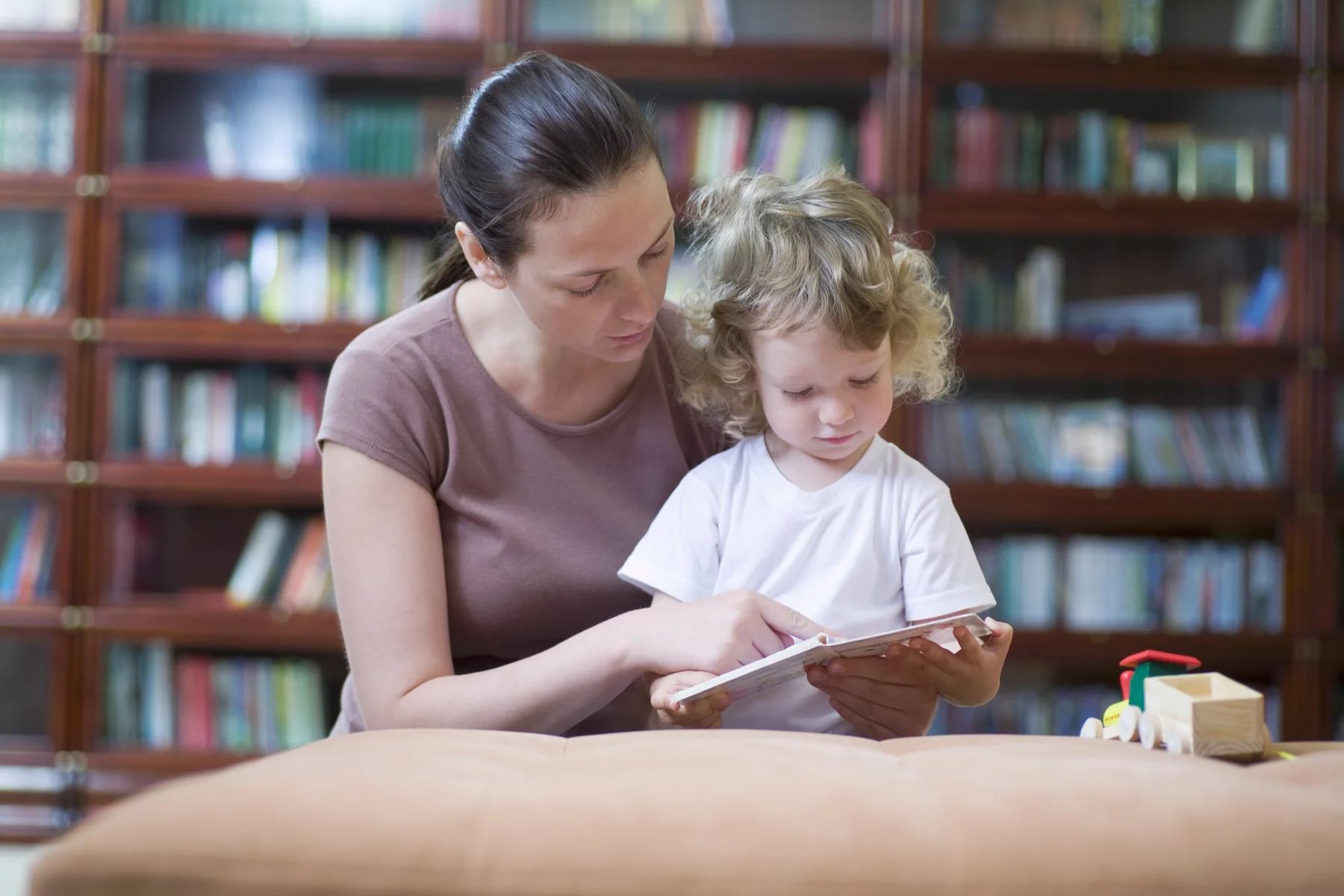
According to Russian law, families have the right to withdraw their children from mainstream schooling and teach them at home. However, they must provide advance notice to their regional education ministry in order to do so. If you choose to homeschool your child, then you might want to consider hiring private tutors for them. Depending on the subject and the individual tutor’s level of experience, you should expect to pay between ₽1,500 and ₽4,000 per 45-minute lesson.
Useful resources
- Russian Ministry of Education – the Ministry of Education website which provides up-to-date news and information
- Vash Repetitor – a company that offers the services of private tutors around Russia
- British Council in Russia – an organization that helps U.K. nationals in Russia connect with their country of origin and adapt to life in Russia
